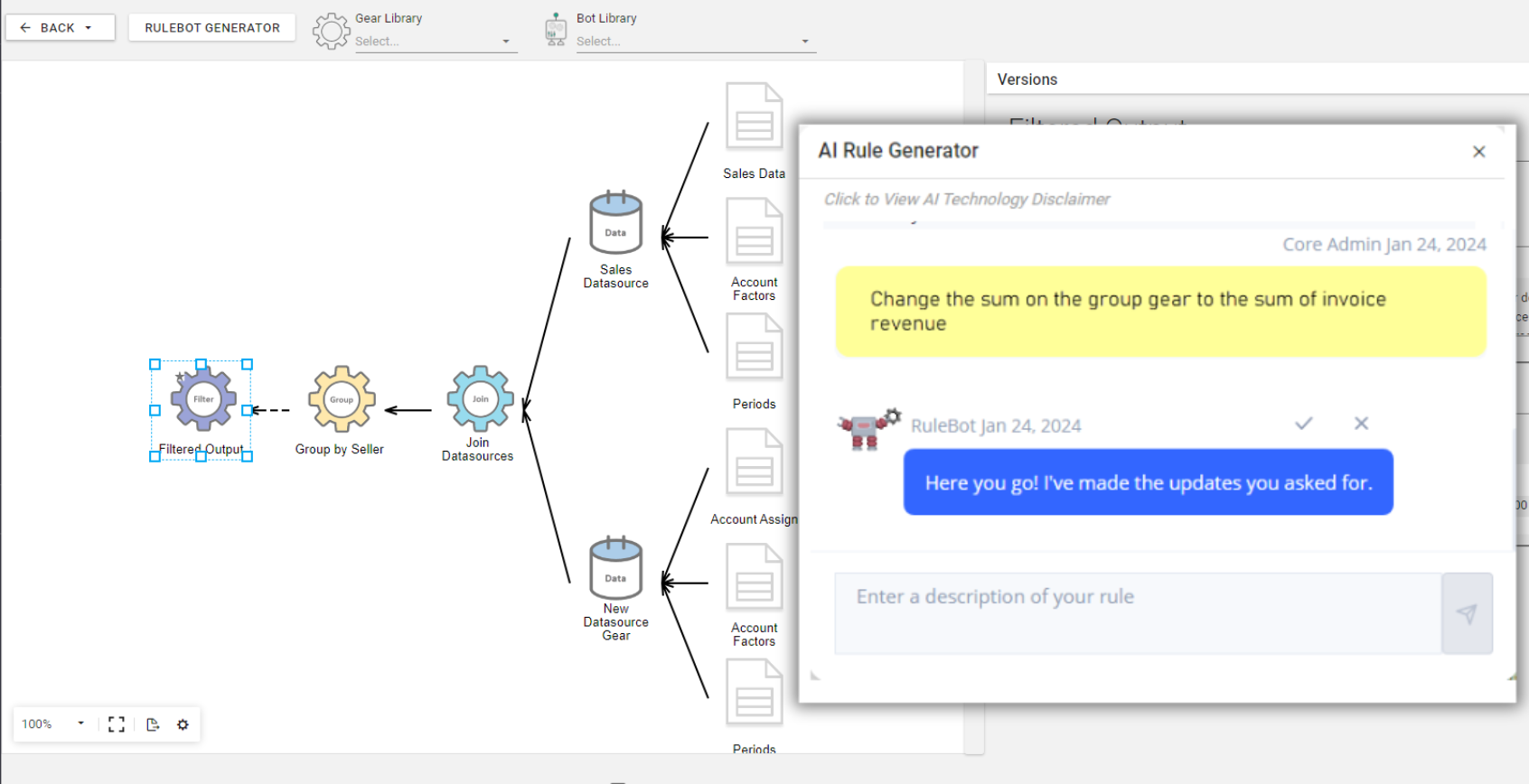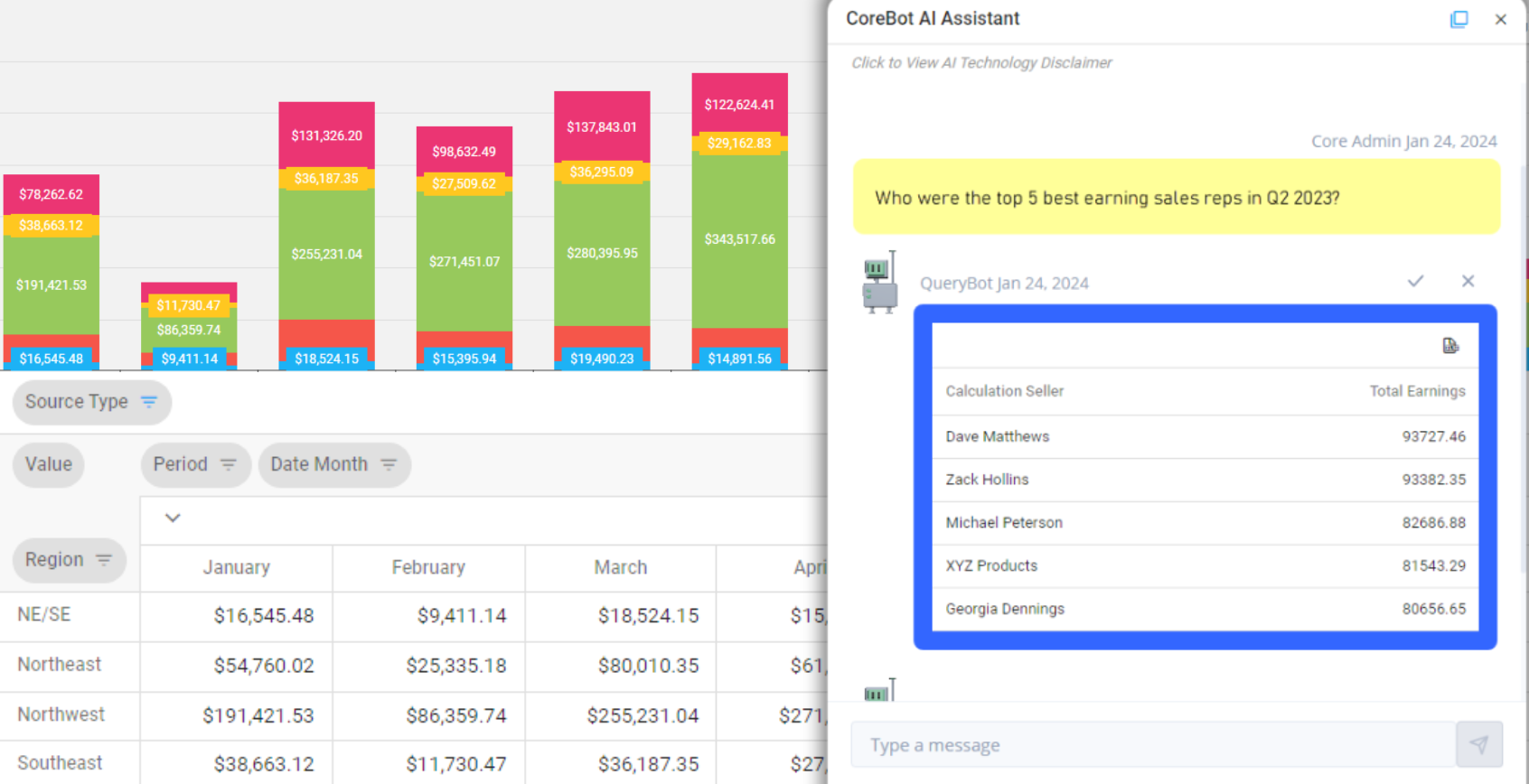The benefits that a powerful commission management platform will provide compensation administrators are endless. The overly complex tasks involved in commission management leave many administrators grasping for anything that will alleviate their workload and reduce the tedious and time-consuming tasks in this often-thankless work.
While the stress of commission management can force you to fall into the arms of any platform claiming robust functionality, properly vetting commission automation solutions prior to subscribing can save you the headache of having to change vendors down the line.
The right commission management platform should be able to automate any of the manual or complex aspects of your commission cycle with ease, saving time, reducing errors, and providing a feature-rich experience for administrators and users alike. However, not all commission solutions are created equal.
When choosing a commission platform, look for these 10 must-have features.
- Advanced Data Management Tools
Processing commissions always starts with the data and there are usually multiple sources of data needed. As we talked about in our blog post: Where Does Your Commission Data Live?, most administrators are tasked with reconciling data from sources ranging from payroll systems, accounting software, and in some cases unwieldy paper statements or PDF files.
The ability to sync data from your various systems automatically through robust data integration options means seamless and accurate transfer of data from system to system. For disparate data that may be stored in PDFs or Excel files, conversion tools are essential to make sure that you aren’t spending hours manipulating data to conform to specific templates that are necessary for imports. And finally, once the data is in the system, having tools that can clean and consolidate data through bulk editing makes data management capabilities at the top of the ‘must-have’ list.
- Powerful & Flexible Rule Designer
Rules are used to define how the system should execute certain functions. This includes everything from how to pull data into the system, managing what data sources are included in commission calculations, and how to calculate incentive payments. Ultimately, the rules designer is the driver behind the automation in a commission management solution. A rules engine works behind the scenes to carry out tasks such as:
- Automatically joining disparate commission data together
- Filtering out predefined data, account fields, or other criteria
- Calculating specified data sets to produce incentive payment amounts
- Measuring performance results such as quota attainment, sales contests, and revenue schedules
The rules engine is where you will see your commission plans come to life, so it should be straight-forward and easy-to-use. The ideal platform will have an intuitive graphical drag & drop interface with powerful off-the-shelf functions capable of building rules of any complexity. To streamline rule building even further, the platform should offer a no-code setup and drop-down functionality.
- Automated Auditing Capabilities
Confidence in the accuracy of your output is crucial when it comes to managing commissions, therefore, automated auditing should be a built-in feature of your commission automation platform. You should specifically look for a solution that is able to provide an instant audit trail directly connected to the rule’s graphical display that walks you through each step of the calculation for you to validate any result with just a few clicks.
Being able to identify and correct potential issues before processing your commission cycle will not only save you time, but will also assure your team that their commission data is accurate. This is why it’s important to be able to easily audit anything from the accuracy of the data that you start with to the output from your commission calculations.
- Rule Versioning
As your business grows, your product offerings may also expand, resulting in a larger variety of product types. Along with the expansion of product offerings, leadership may decide to re-evaluate the company’s commission plan to make sure incentives are appropriate and fair for each new offering. When commission changes occur, it’s important to be able to record and save changes over time to make managing the transitions seamless.
Rule versioning streamlines the inevitable commission rule changes by maintaining proper linkage to reports and other output automatically, so you can reduce the amount of work involved in putting a new rule into production substantially.
- Multiple Data Visualization Options
One of the most sought out features of a commission automation platform are the reporting capabilities. Almost all vendors will offer reporting features of some sort, ranging from basic off-the-shelf reports, to more advanced customizable options. When deciding between commission solutions, make sure to opt for a platform with comprehensive and flexible visualization tools. Reports certainly fall into this category, but your team will also benefit from customizable dashboards and robust analytic functionality.
Similar to the rules-engine flexibility, reports, dashboards, and analytics all need their own drag & drop designers available to end users for easy, on-the-fly data visualizations. A designer with flexible formatting is a must to allow for easy transformation of any type of data.
- Role-Based Security
For each level of your organization, your team members may require varying permissions to what they can and cannot see in solution. A balanced and flexible solution should be able to customize these permissions for each designated user group through role-based security. Role-based security ensures that every user has access to see all of the information they need as well as the permissions necessary to edit data pertinent to their role. On top of this, role-based security also ensures that users are unable to view unauthorized information.
An agile commission management platform will also have tools handy for administrators to easily test which users have access to what through alias login functionality, so you can see exactly what your other users would see.
- Hierarchy Management
Aside from sales and revenue data, some of the most complex data to track and manage is based on hierarchical rules. Team performance metrics, management overrides, or other hierarchical rules all involve understanding who reports up and down the organization at different times. When new roles are established, or when team members are promoted, this data gets even more difficult to manage, especially when attempting to do so manually. Your commission automation platform must be able to track any type of hierarchical data automatically across any selected time.
Hierarchy management is a key feature that will ensure that the solution will scale with you as your business grows.
- Customizable Forms – 2-Way Communication
In a commission management platform, customizable form input is essential to address the unique needs and variables of managing your sales team. A robust solution should allow users to submit feedback on pay and performance details or even review and approve outputs – all from within the platform.
Custom forms enable the platform to accommodate these specific requirements, ensuring that all relevant data points are accurately captured and processed, and historical records are stored for each user’s activities for clarity and transparency.
This flexibility not only enhances the accuracy of commission calculations, but also enables leadership teams to communicate more effectively with employees by having proper documentation. By customizing the forms to fit the specific workflow of each organization, users can streamline data entry, reduce errors, and improve overall efficiency.
- AI Support
Ease of use and responsive support is critical for any platform, but especially in commissions because incentive rules can be very complex. AI tools can be helpful, but to be truly effective, they must be configured for the full suite of application functions, not just surface level prompts and responses.
You want to seek out a commission automation solution that provides AI support for all major features in the system. AI models work best when they are specialized to perform a specific function, instead of having one model support the entire system, so look for the nuances in how their AI tools respond to prompts. Are they actually able to carry out requests? Or are they only able to respond to specific questions?
In a commission management solution, you want AI tools that support building and auditing rules, designing analytics, and the ability to streamline your administrative processes.
- Try Before You Buy
Lastly, one of the most important things to look for when choosing a commission management platform is whether the vendor can really deliver on their claimed capability. How will you truly know that the solution can handle all the varied and complex details of your commission plan without being able to test it out?
Free trial sandboxes often fall short of providing you real working conditions, and finding out your selected vendor can’t deliver on required functionality until after you’ve already signed the contract can be a painful and expensive lesson. To avoid the pitfalls of contracting with a solution that can’t meet your needs, look for a company that provides a proof-of-concept program.
Vendors who are confident in their applications’ capability will offer a proof-of-concept program to allow you to validate the platform’s ability to support your most demanding requirements using your own data and rules in real-world scenarios.
Make Sure Your Commission Management Platform Checks All the Boxes
When looking for a commission automation platform, start with a solid understanding of your current and potential future requirements. If a vendor supports the full range of features on this list, their solution will likely meet your needs, but always be sure to request proof-of-concept to verify for yourself.
Core offers all these features and many more along with a low-cost, proof-of-concept program Quick Start.
Contact us or schedule a free demo so we can show you these capabilities firsthand.

